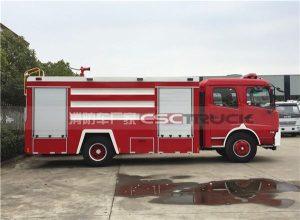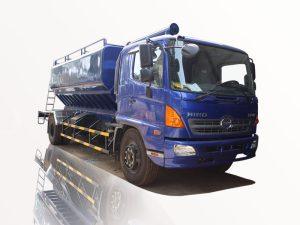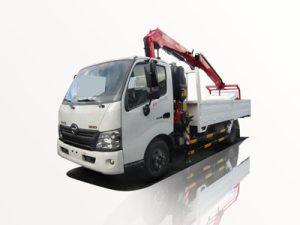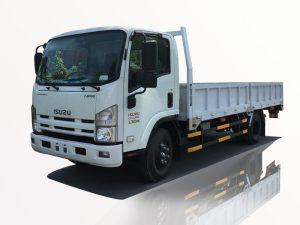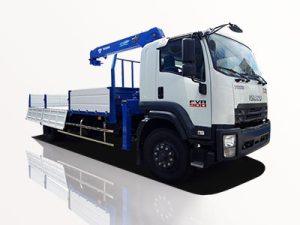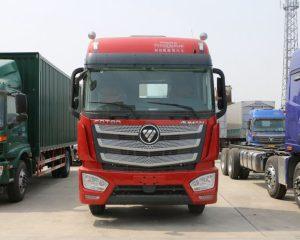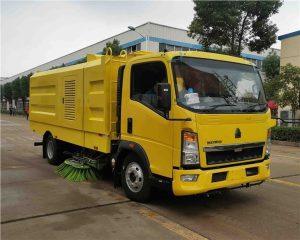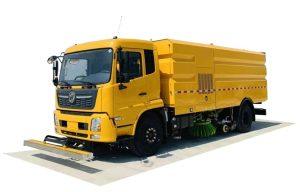Monday to Saturday - 8:00 -17:30
Small Mini Truck: Your Ultimate Guide to Versatile Transport
When it comes to transporting goods, small vehicles offer a level of convenience that can significantly enhance logistics for businesses and personal use. Among these vehicles, the small mini truck stands out as a highly adaptable and practical solution. In this guide, we’ll explore all aspects of small mini trucks, including their benefits, types, uses, comparison with larger trucks, and much more.
What is a Small Mini Truck?
A small mini truck is a compact vehicle designed to carry cargo while being manageable in size. These trucks often have a flatbed design, making them perfect for loading and unloading various materials. With their small footprint, they can easily navigate tight spaces where traditional trucks might struggle.
Key Features of Small Mini Trucks
- Size: Small mini trucks typically measure less than 15 feet in length.
- Payload Capacity: They can carry around 1,500 to 3,500 pounds, depending on the model.
- Fuel Efficiency: Many mini trucks offer superior fuel economy compared to larger trucks.
- Easy Maneuverability: Compact size allows for easy parking and handling in urban areas.
Benefits of Using a Small Mini Truck
Investing in a small mini truck can offer numerous advantages, particularly for small business owners or anyone needing reliable transportation for goods.
1. Cost-Effective
The initial cost of acquiring a small mini truck is generally lower than that of larger models. Coupled with better fuel efficiency, they can significantly reduce operating costs over time.
2. Versatility
These vehicles can serve a variety of purposes, from landscaping and delivery services to moving furniture. Their adaptability makes them a favorite among various industries.
3. Environmental Impact
Given their smaller engines, many mini trucks produce fewer emissions compared to larger vehicles, contributing to a lower carbon footprint.
4. Easy Maintenance
Maintenance costs tend to be lower due to the simpler mechanics and widespread availability of parts. Routine maintenance can often be performed without specialized training.
Types of Small Mini Trucks
Different types of small mini trucks cater to various needs and preferences. Below are the primary types you can consider.
1. Flatbed Mini Trucks
These trucks feature an open cargo area suitable for transporting large items. They are ideal for construction materials, equipment, and furniture delivery.
2. Box Mini Trucks
Box mini trucks come with an enclosed cargo area that offers protection for valuable goods against the elements. These trucks are typically used for deliveries or moving sensitive equipment.
3. Refrigerated Mini Trucks
Equipped with refrigeration units, these trucks are specifically designed for transporting perishables like food items or pharmaceuticals.
Comparison Table: Types of Small Mini Trucks
| Type | Best For | Features |
|---|---|---|
| Flatbed | Construction & Landscaping | Open cargo area, easy loading |
| Box | General Deliveries | Enclosed cargo, weather protection |
| Refrigerated | Food & Pharmaceuticals | Cooling system, temperature control |
Common Uses for Small Mini Trucks
The small mini truck serves a variety of industries and personal uses, making it a functional tool in numerous scenarios.
1. Delivery Services
Small mini trucks are commonly used for local deliveries, providing a perfect balance of size and cargo capacity. They are especially popular among retail businesses needing to deliver products to customers quickly.
2. Landscaping
Landscapers often utilize mini trucks to transport tools, plants, and materials. Their maneuverability allows landscapers to navigate residential areas with ease.
3. Construction
In construction, these trucks are ideal for moving materials between job sites, particularly in urban settings where larger vehicles cannot access. Their flatbeds facilitate the transportation of heavy loads.
4. Personal Use
Individuals can also benefit from owning a mini truck for activities like moving furniture or carrying gear for recreational activities. Their compact nature makes them suitable for everyday use.
How to Choose the Right Small Mini Truck
Selecting the right small mini truck involves several considerations to meet your specific needs.
1. Assess Your Needs
Determine the primary purpose of your mini truck. Are you using it for business, personal errands, or a combination of both? Understanding this will inform your choice.
2. Evaluate the Payload Capacity
Consider how much weight you need to transport regularly. Select a model that can comfortably handle your required capacity.
3. Fuel Efficiency
Compare the fuel economy of various models. A truck that offers better mileage can save you significant costs over time.
4. Budget
Establish a budget that includes not just the purchase price but also insurance, maintenance, and potential accessories.
5. Test Drive
Always take a test drive to evaluate handling and comfort before making a purchase. Pay attention to visibility, maneuverability, and the interior layout.
Maintenance Tips for Small Mini Trucks
1. Regular Oil Changes
Changing the oil at regular intervals helps maintain engine health. Consult the owner’s manual for recommended change intervals.
2. Check Tire Pressure
Proper tire pressure contributes to fuel efficiency and safety. Always check the pressure before long trips.
3. Brake Inspections
Regularly inspect the brake pads and rotors to ensure safety. Replace them as necessary to avoid accidents.
4. Keep It Clean
A clean truck is less prone to rust and damage. Wash your mini truck regularly, especially during winter months when salt is used on roads.
Comparing Small Mini Trucks to Full-Sized Trucks
While full-sized trucks have their advantages, small mini trucks present a unique set of benefits worth considering.
1. Maneuverability
Mini trucks can easily navigate tight spaces, while full-sized trucks often face challenges in urban environments.
2. Cost
Small mini trucks are generally less expensive to buy and operate, making them more accessible for small business owners.
3. Fuel Efficiency
Mini trucks typically offer better fuel economy, which is essential for reducing total operating costs over time.
4. Versatility
While full-sized trucks may excel in hauling heavy loads, mini trucks can be just as effective for lighter loads and offer greater versatility in various applications.
Frequently Asked Questions (FAQs)
1. What is the average cost of a small mini truck?
The cost of a small mini truck can range from $10,000 to $30,000 depending on the make, model, and features.
2. How much weight can a small mini truck carry?
Generally, small mini trucks can carry between 1,500 to 3,500 pounds, depending on the specific model and configurations.
3. Are small mini trucks good for personal use?
Yes, they are excellent for personal use, especially for tasks like moving furniture, transporting gardening supplies, or going on weekend trips.
4. How fuel-efficient are small mini trucks?
Fuel efficiency varies by model, but many small mini trucks offer between 20 to 30 miles per gallon, making them cost-effective for everyday use.
5. Do I need a special license to drive a small mini truck?
In most cases, a regular driver’s license is sufficient to operate a small mini truck, but regulations can vary by state or country.
6. Can small mini trucks off-road?
While primarily designed for on-road use, some mini trucks have off-road capabilities, particularly those built with reinforced suspensions and drivetrains.


